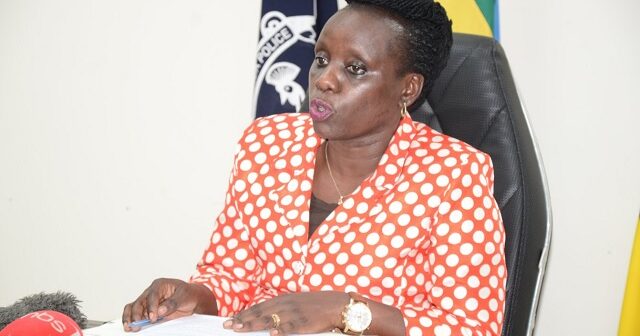Uganda National Examinations Board-UNEB is investigating a possible leakage of Primary Leaving Examinations-PLE.
The examination body is following up on two people suspected of distributing what is said to be national examinations to schools.
Although the information about the said probe is still scanty, several sources indicate that the two might have been distributing PLE papers ahead of the exams scheduled for November 8th and 9th, 2022.
“It’s a significant problem, and the police are reportedly pursuing the suspects. However, if the documents they were selling are accurate, that means that there was a leakage within the organization, which will result in an internal shake-up…The board is serious about combating malpractice,” a source within the examinations body told our reporter.
The UNEB spokesperson Jennifer Kalule, confirmed the on-going probe against the two suspects in regard to what is said to be UNEB papers. She however declined to divulge details of where the said suspects are and the exact examination materials in their possession.
Kalule however hinted that the suspects could have been sharing these materials using social media platforms. “The forensic professionals are still looking into the chain. Once they have finished, more information will be disclosed.”
Numerous UNEB reports have repeatedly pointed to the high rate of exam malpractices in primary schools. The vice has gradually permeated Uganda’s educational system and is linked to a number of issues including among others, the commercialization of education, fierce and unhealthy competition among schools, and increased pressure on educators to deliver results.
The matter was a subject of contention during a recent meeting between UNEB officials and school inspectors, who traded accusations of orchestrating examination leakages and encouraging malpractices. While the Ministry of Education and the examinations body accused school inspectors of encouraging fraud, the inspectors said that most leakages originate within UNEB.
Until 1991, UNEB was printing examinations materials from the United Kingdom. In 1992, the government decided to start printing them locally which saw the leakages quickly becoming the order of the day.
In a recent interview, Dr. Kedrace Turyagyenda, a former UNEB board member, noted that many local printing companies lacked integrity and security. “This was partly solved when UNEB bought its own printing machine. But without enough checks and balances, you never know something might slip through,” Dr. Turyagenda said.
With little information on the alleged leakage, URN asked whether UNEB has contingency plans in case the 2022 PLE papers did indeed leak a week before they are scheduled. In her response, Kalule said that the board has several plans in place, some of which are confidential.
“While we have various measures to address this, we also wish to warn the public to stop distributing or forwarding suspected examination materials online. Whether the information is real or fake, anyone who spreads it risks prosecution, which carries hefty fines and jail time upon conviction,” she said.
Kalule also talked of the possibility of switching off social media in case it is established that there are individuals using it or planning to use it as a tool to facilitate examination malpractice.
“The people under probe were using social media. Our people should be aware that if these communication channels are exploited, UNEB now has the authority to temporarily suspend them. Although that is at the extreme it’s possible,” Kalule added.
Section five of the UNEB Act gives the board powers to request the Uganda Communications Commission to control the use of any type of electronic communication for a specified duration where it is suspected or proved that examination malpractice is being committed using electronic communication.
In several countries, more notably in the Middle East and North Africa, turning off the internet or social media is becoming a common strategy to combat examination malpractices. Algeria pioneered the move hitting the internet kill-switch every year since 2016.
Aside from disabling the internet, the new UNEB Act also grants the board the authority to cancel an exam when it is established that there has been widespread or national-scale examination malpractice.
Impersonation has been the most widely reported type of exam fraud in the ongoing Uganda Certificate of Education examinations this year. At least two people including a parent and candidate—have been convicted and sentenced respectively for examination malpractice. Ten other people are facing similar charges.
*****
URN


